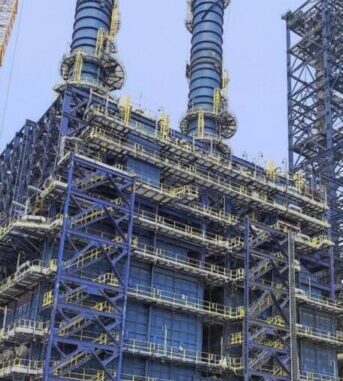
Diesel Provides: Comfort at the Pump
Now, drivers, truckers, and companies using diesel generators should feel some respite. The introduction of diesel from Dangote Refinery is a positive step for Nigeria’s industrial and transportation sectors. Maintaining the flow of commodities and the operation of vital services depends on having consistent availability to diesel fuel.
Dangote Refinery Establishes Itself
It’s finally over! The official start date of Dangote Refinery’s (a major refinery in Nigeria and throughout Africa) delivery of diesel (AGO) to the domestic market was April 3, 2024. This is a big step forward for the energy industry on the continent, and it might have a big effect on gasoline pricing and availability across Nigeria. With a processing capacity of 650,000 barrels per day, the Dangote Refinery in Lekki, Lagos, is the world’s biggest single-train refinery. With this significant output, Dangote is positioned to significantly alter the Nigerian petroleum market.
Fuel Provided Efficiently
On April 2, 2024, word spread that Dangote had started selling diesel to regional advertisers. The initial cost is around 1,225 naira per liter ($0.96), according to the Independent Petroleum Marketers Association of Nigeria (IPMAN). This may serve as a market benchmark and result in lower retail costs for customers in the upcoming months. Another important advantage is efficient delivery. According to reports, Dangote has teamed up with merchants to guarantee efficient diesel transportation across Nigeria by land and water. This could result in shorter lineups and more reliable gasoline availability at gas stations.
Beyond Diesel: Fuel at the Ready
Although supplies of diesel are presently being delivered to marketers and should soon arrive at gas stations, drivers who are in need of gasoline (PMS) won’t have to wait very long. Dangote is said to have established May 2024 as the goal date for starting the distribution of gasoline. Dangote is positioned as a prominent participant in the Nigerian gasoline industry because to this all-encompassing approach to the manufacturing of refined fuel. The nation has made progress in having a dependable local supplier of gasoline and diesel, which might result in a more stable and predictable fuel supply environment.
Possible Effect
According to analysts, Dangote’s debut into the market may have a series of advantageous outcomes:
gasoline availability will likely increase as local production picks up, allowing Nigerians to enjoy more reliable and less scarce gasoline supplies. This might lessen dependency on imports and stabilize prices.
Price fluctuations: By introducing competition, Dangote’s pricing approach may be able to lower retail costs for both gasoline and diesel. Both firms and consumers may gain from this, increasing their purchasing power and thus promoting economic development.
Economic boost: It is anticipated that the refinery’s activities would provide employment across a range of industries, including engineering, construction, logistics, and transportation. The Nigerian economy as a whole could be affected by this, encouraging economic ventures and possibly raising living conditions.
An Important Development

Nigeria has taken a big step toward greater energy independence and security with the opening of the Dangote Refinery. In addition to its tremendous processing capacity, this cutting-edge plant is ideally situated to supply refined fuels across the nation with efficiency. The introduction of Dangote might alter the Nigerian petroleum market in a number of ways. First off, Dangote has the potential to mitigate fuel scarcity and guarantee a more steady supply of gasoline for both consumers and businesses by augmenting local production of refined fuels. More predictability in pricing and economic activity might result from this. Second, Dangote’s pricing approach could bring in a reasonable amount of competition to the market.
perhaps bringing down the retail cost of gasoline and diesel. Not only would cheaper gasoline help individual customers, but companies that depend on logistics and transportation would also profit. Lastly, a sizable number of employment are anticipated to be created by the Dangote Refinery in a variety of Nigerian economic sectors. This helps not just the people who work at the refinery directly, but it also has a knock-on impact on other sectors of the economy, promoting economic expansion and maybe raising living standards in Nigeria. This is an interesting development to keep an eye on whether you’re a driver, an industry professional, or just interested in the state of the African economy.

Be the first to comment